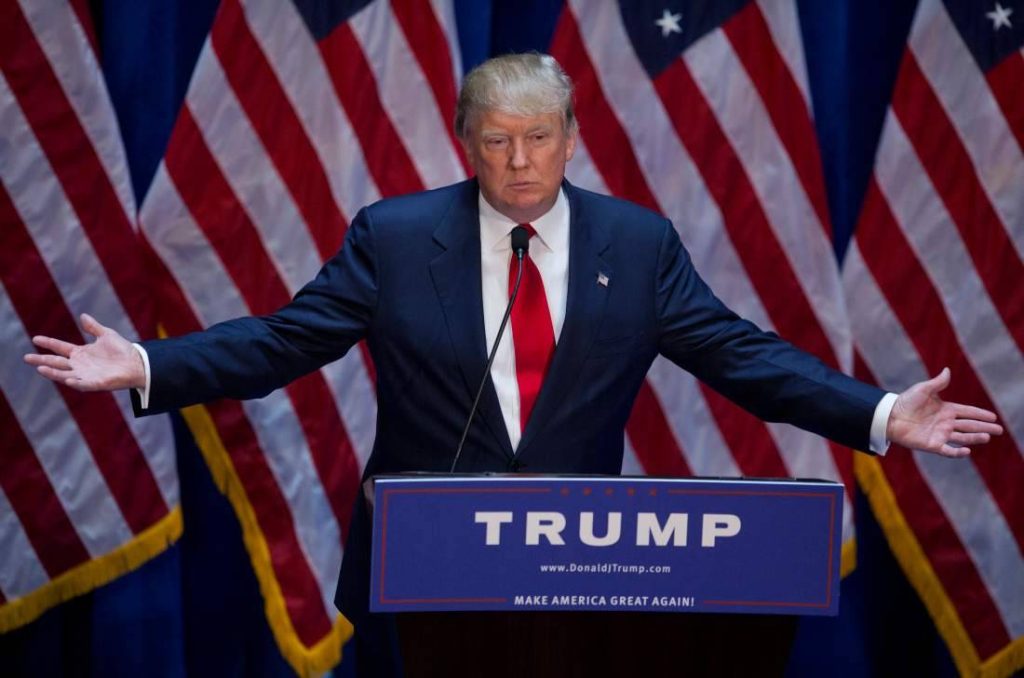The US dollar rose gradually on Monday after fears of a renewed escalation in the trade war between the United States and China eased, while political developments in France and Japan weighed on both the euro and the yen.
The dollar index — which measures the performance of the US currency against a basket of six major peers — climbed 0.2% to 99.2, recovering from last week’s losses that followed President Donald Trump’s announcement of 100% tariffs on China.
That announcement revived memories of “Liberation Day” last April, when Trump imposed sweeping tariffs on Chinese imports, triggering a sharp sell-off in stock and cryptocurrency markets on Friday.
Trump softens his tone
Tim Kelleher, head of institutional FX sales at Commonwealth Bank in Auckland, said: “The mood is definitely tense, but it looks like Trump has toned things down again a bit.”
He added, referring to a saying popular among traders known as “TACO” — short for “Trump Always Chickens Out.”
After announcing 100% tariffs on Friday, Trump wrote on Truth Social Sunday: “Don’t worry about China. Everything will be fine! President Xi, a very respected man, had a bad moment, but he doesn’t want a recession for his country, and neither do I. The United States wants to help China, not hurt it!”
Euro declines, dollar rises against the yen
Market liquidity was partly affected by the Columbus/Indigenous Peoples’ Day holiday in some US states, though stock markets remained open. Japanese markets were closed for Health and Sports Day.
The euro fell 0.3% to $1.1584, ignoring the announcement by the French presidency that Prime Minister Sébastien Lecornu had formed his new cabinet on Sunday, which included the reappointment of Roland Lescure, one of Emmanuel Macron’s closest allies, as finance minister.
Against the Japanese yen, the dollar climbed 0.8% to 152.295 yen as investors monitored the prospects of the new Liberal Democratic Party leader, Sanae Takaichi, after the Komeito party withdrew from the ruling coalition on Friday — a setback to her hopes of becoming Japan’s first female prime minister.
Currencies and commodities
Cryptocurrency markets saw swings between gains and losses after Friday’s sharp sell-off, with Bitcoin rising 0.2% to $115,313.
In commodities, gold hit a new record high of $4,079.1 an ounce, up 1.5%.
The offshore Chinese yuan regained some stability, trading at 7.1416 per dollar after touching an earlier low of 7.144, supported by data showing faster Chinese export growth in September.
Volatility expected in currency markets
Despite the slight improvement in sentiment on Monday, analysts warned that markets remain fragile and currencies could experience sharp price swings.
Lee Hardman, currency strategist at MUFG, said: “As we saw earlier this year, neither side can afford such high tariffs for long, and Trump’s latest remarks again point to a potential path toward de-escalation.”
He added that the trade threats may only increase short-term FX volatility and could trigger unwinding in some carry trades.
Carry trades involve borrowing in low-yielding currencies to invest in higher-yielding ones, with the Japanese yen and Swiss franc often used as funding currencies — both of which were the weakest on Monday.
The Australian dollar, which tends to rise in risk-on environments, was the best performer among major currencies, up 0.75% to $0.6521, while the British pound was little changed at $1.3327.


